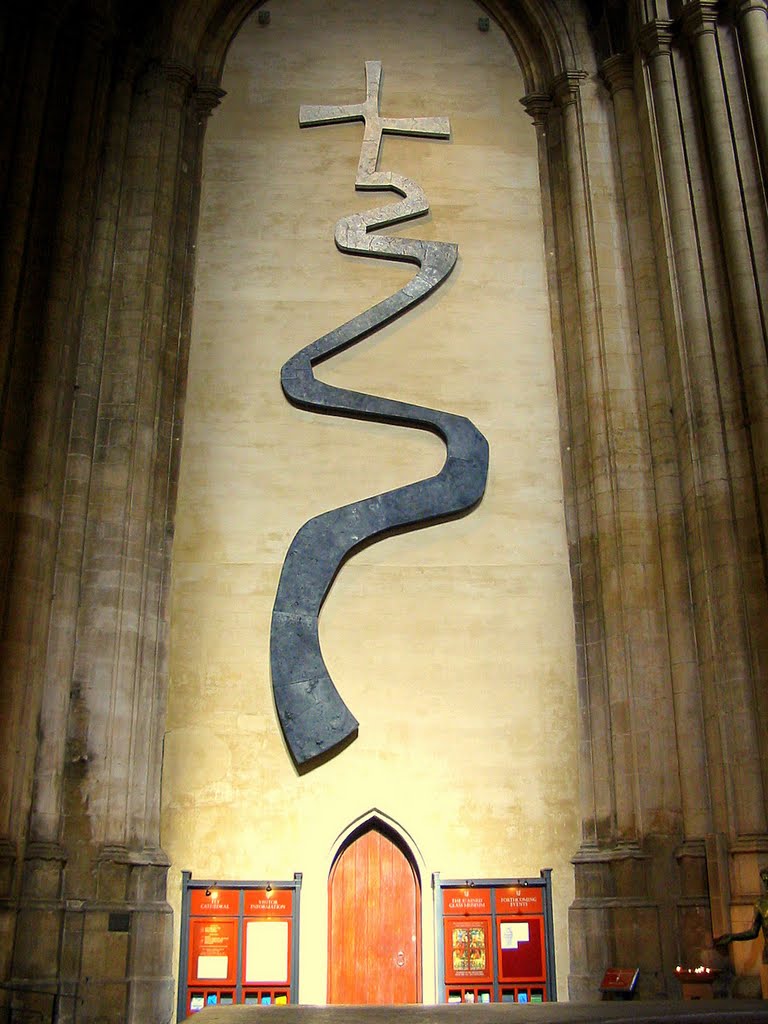Journey Through Lent
The Ipswich Unitarian Meeting House in the morning.
This morning, as I have already begun doing, I am going to be reflecting on this season of Lent, and in part, this does lead on from some of my thoughts from last week on the ‘Binding of Isaac’. Last week we thought about the episode in Genesis in which Abraham takes his child Isaac, at God’s bidding, and leads him to a mountain to be sacrificed, and God, at the last moment, steps in and stops it from happening. We went through a few different ways we might parse out that troubling event, none of which, however, I think are ultimately adequate. I suppose the world does not always offer us adequate explanations, we’re sometimes left in the dark, in an uneasy space unable to reconcile things. We’re left with no other choice but to sit with and inhabit that uncomfortable space, or alternatively (as many people do) deny it, and pretend it’s not there. And I have a strong bias towards the former. Allowing ourselves to sit with the paradox, to live with our sense of unease, and not run away from it – that is to be more authentic to reality. And ultimately, I suppose, striving to be an awakened sort of person is about a greater awareness of reality, as it plays out in its kaleidoscopic fashion upon that multitude of planes. When our eyes are open, paradoxes become the norm, not the exception.
Okay, so, there’s one key way (there are probably lots of ways, but there is one key way) of considering the ‘Binding of Isaac’ text, that we did not go into last week. Namely, the parallel that can be drawn between the Old and New Testaments, between the ‘oh so nearly’ sacrificing of Isaac, and the “sacrificing” (note quotation marks) of Jesus. We remained very Hebrew-Bible orientated last week. Obviously, whether we like it or not, sacrifice is a central theme of the Christian narrative and religion. It’s in there a lot. Not just in some of the ways that Jesus’ death has been understood, but it’s prominent in Jesus’ own teachings as well. The multitude of ways sacrifice has been extrapolated out into its various theological frameworks, by liberals, by conservatives, throughout our long Christian history has been one of the keystone divisive issues, perhaps even the keystone issue, which has caused, and continues to cause, estrangement between Christian faith communities. So, responding to, and coming to terms with the concept of sacrifice is necessary.
And of course, ‘sacrifice’ is historically an important part of Lent, traditionally a time to reflect, repent, and prepare our hearts for the celebration of Easter. This reflecting, repenting, and preparation of our hearts is often done by fasting, or in its lesser form, abstaining from something, chocolate maybe. Removing things to make room for our pursuit of God. In other words, a sacrifice. Short term loss, for long-term gain. And what is that long-term gain? Well, I suppose you can divide sacrifice into two categories: the worldly use of that term, and the mythological use. In worldly terms, people talk about sacrificing time, money, or energy to achieve a particular end. A sports person will sacrifice x number of years in practice, and become a world class footballer, or golfer, or whatever. In mythological terms, we sacrifice something, usually at great personal cost, for a long-term gain which we will probably not even receive in this lifetime. And this will often make natural sceptics such as myself feel uneasy. They’re doing all this, or they’re giving up all this, because they think they’ll get – what? It's all pie in the sky when you die bye and bye.
And in its purest form, ‘sacrifice’ is generally a reference to animal sacrifice, as we discussed last week. In the Hebrew Bible that sacrifice could be of a bird, or a goat, or an ox, or indeed of a human being. And we might consider such practices as primitive, or superseded. Superseded by the new morality that we find expressed by Jesus in the New Testament. Whereas the Hebrew Bible is at times barbarous, the New Testament advances a Gospel of Love. The trouble is that Christian orthodoxy, or penal subsidiary theology as articulated by St Paul in his letters, doesn’t really supplant the theology behind the Judaic sacrificial cultic system. The atoning sacrifice of Jesus is that logic taken to the nth degree.
The cross at Ely Cathedral.
When it came to Isaac, God stepped in and stopped the unthinkable from happening. But in Jesus’ case, God did not step in, he sanctioned this human sacrifice, and viewed it as a sufficient atonement for the sins of humanity, as far as St Paul was concerned anyway. And so, where we might have hoped that God stepped in to save Isaac because human sacrifice was a step too far, simply an unnecessary step in appeasing God, Christian orthodox theology forces the conclusion that this was not the case – that Isaac was merely the wrong human. So, what I’m driving at is that although the Judaic sacrificial cultic system seems remote and irrelevant to contemporary Christian thinking today, this is not the case. It informs how Jesus’ death is understood by most Christians, and by extension it informs how sacrifice is understood. And as such, it informs the Christian mainstream understanding of Lent. To give, at great personal cost, for the miraculous payoff in this life or the next.
Our task then, the liberal Christian task, or the Unitarian task, is not to receive mainstream Christian theology as it is and merely round off the rough edges, making it a bit more palatable to a contemporary audience. Our reading of Christianity needs to be a radical re-reading of our received tradition. We need to completely reconceptualise Christianity, and that probably begins with fundamentally refreshing our understanding of sacrifice. So again I ask, what is the long-term gain? Sacrifice, in the mythological sense, is believed to have some kind of mythological payoff. Our sacrifice now will result in God’s favour, God’s blessing, perhaps everlasting life. This makes orthodox Christianity very transactional, and it makes it very future, instead of present, orientated. What you’re going to get is a big part of the equation.
As a result of Jesus’ faithfulness, his sacrifice, he was raised back to life, in the narrative. And in the Epistle to the Hebrews (chapter 11), the author there speculates that if Abraham had carried through his sacrificing of Isaac, that Abraham too would have been rewarded, in that Isaac would also have been raised back to life. So, how might we begin to refresh our understanding of sacrifice? I was put onto this poem, or prayer, by Andrew Brown, the minister at Cambridge.
‘Lent’ by Lynn Ungar
What will you give up for this season,
to help life along
in its curious reversals?
As if we had a choice.
As if the world were not
constantly shedding us
like feathers off a duck’s back—
the ground is always
littered with our longings.
You can’t help but wonder
about all the heroes,
the lives and limbs sacrificed
in their compulsion toward the good.
All those who dropped themselves
upon the earth’s hard surface–
weren’t they caught in pure astonishment
in the breath before they shattered?
Forget sacrifice. Nothing
is tied so firmly that the wind
won’t tear it from us at last.
The question is how to remain faithful
to all the impossible,
necessary resurrections.
In it, the author, Lynn Ungar, a Unitarian Universalist minister in America, says we need to ‘forget sacrifice’. Of course, she’s referring to the mythological type of sacrifice about which we’ve been talking. This idea that there is a God up there, who requires the death of a human being for us to be right with him, this is the idea Ungar is asking us to forget, or give up for Lent. Traditionally Lent asks us to give something up, sacrifice something, so that we might receive our spiritual reward. But is not all of life the shedding of things? Are we not dust, and to dust we shall return? There is nothing we have that will not be ultimately taken, and we will have no choice.
That is the natural way of things. Our losses are not sacrifices offered up to a God, to bring us into greater harmony with him, our losses are just simply the natural precondition and consequence of life (as we know it). As Ungar states, “nothing is tied so firmly that the wind won’t tear it from us at last.” Things die, and out of that death comes new life. In a mythological and poetic sense we can make this claim, but it’s true also at a scientific, biological level: cells die, and the nutrients are reabsorbed back into the soil, and new life comes forth. Once she asks us to forget sacrifice, she ends by positing a question; “The question is how to remain faithful to all the impossible, necessary resurrections.”
Reference to ‘resurrection’ in a poem about Lent is obviously a reference to Easter, and the resurrection of Jesus. Resurrection, in its literalistic, bodily sense, is a no-go area for someone with a naturalistic worldview such as myself, as I’m sure it is for Lynn Ungar too. But to remain a Christian, as I would consider myself, you need to do something with the resurrection motif. In the Christian tradition, resurrection is necessary. And so, at the most liberal ends of the Christian tradition, we of course acknowledge that Jesus dies on a cross, he’s killed and buried. But somehow (figuratively, symbolically, poetically), that death is not the end of Jesus, and the proclamation ‘He is Risen!’ remains meaningful.
But, Ungar’s reference to resurrection is not singular, but plural. Jesus met his hopeless, shameful end upon the cross, but hope ultimately prevailed, and in the same way, echoed throughout history, politics, and people’s lives, we run into the downhearted, the lost causes, and the futile conditions, out from which new hope and possibility emerges. And these inexplicable turn-arounds will sometimes require from us, all of us, everyday kinds of sacrifice. But it won’t be sacrifices offered up to the divine judge in the sky expecting as much, it will be sacrifices offered out, out into the universe, out to the God who is the totality, who is synonymous with Nature. So for Lent let us forget sacrifice, let us reject the blood baiting God of animal sacrifice, and instead live into the possibility of hope, the possibility of resurrection, the God of nature’s beauty, which renews us, and makes once again the impossible, possible, in us.
Amen.


